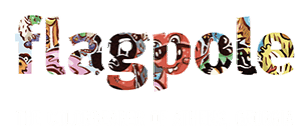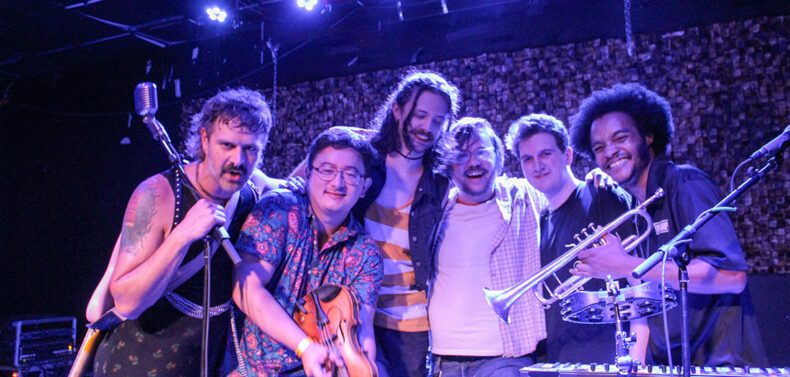Somewhere between Against Me!, Belle and Sebastian, and a musical theater pit orchestra, you’ll find ozello, an eclectic punk band, probably singing about heartbreak, identity or mortality.
Ozello began in 2016 as a duo with guitarist and frontperson Jeofry Wages and friend Michael Frederik, who had convinced Wages to start writing songs, playing electric ukulele. Over the next few years, the band added Garam Ri on lead guitar and violin for a fuller sound, picked up Chris Robinson on bass after seeing them play a house show in 2017 and brought on Jeofry’s friend from UGA, Gil Eplan-Frankel, on drums. Ozello underwent a lineup change in 2018 with Frederik leaving the band and Laura Spears joining on trumpet and keyboard. In 2019, it released Pronouns, a six-track EP taking inspiration from queercore, indie-folk and the confessional songwriting tradition. The plan was to ride this wave into recording their full-length album, You Know How It Ends, early the next year.
This took them five years and three attempts to accomplish. “We set out to record this thing in January 2020,” Wages says. “Famously, a great time just before a really bad time to be locked in a small room with a bunch of people.”
With the COVID-19 pandemic pausing the initial recording process, the band returned in 2021 to record the album. By then, Michael Burkhardt replaced Eplan-Frank on drums, Spears had stepped away from the band, and Jody Rollins joined on keyboard and auxiliary percussion. This was a frustrating position for the band. The songs had been written for several years but not recorded, Burkhardt was living in Florida, and the first attempt at making this album was interrupted. Moreover, something kept nagging at Rollins: a single tom drum with a misplaced mic.
“The tom didn’t sound right. That was an easy fix that could’ve been fine,” Rollins explains. But he recounts listening to the first full recording of the album while driving to Atlanta for a show. “While driving, I pulled up Google Drive and I hit play, and I was like, ‘Oh my God! This doesn’t even sound like Michael’s playing the drums. The guitar tone isn’t at all like what Jeofry’s guitar tone is.’ There’s autotune. Everything had been Melodyne’d perfectly to the point where the emotion was kind of taken out of Jeofry’s voice.”
Rollins and Robins say that the recording engineer they worked with had also removed parts of songs with tempo changes and resets—a key feature in Ozello’s dynamic song structure—included his own drum parts instead of Burkhardt’s drumming, and refused to give the band their recordings without auto-tune.
Rollins continues, “I told everyone at Astoria that night, ‘Are you all really going to release this? Because this doesn’t sound too good.’” The other members agreed with Rollins, expressing their own unsure and unsatisfied feelings. The next question was how to fix this. In 2022, the band re-recorded some of the album, retracking guitar and drum parts before deciding that fixing individual pieces would not be enough; they would have to re-record the whole album.
“It was a tough mental decision, and it was very mentally taxing for me,” Wages says. “At that point, three years after when we thought the album was going to be done, we were still playing these songs at shows over and over again. And I think it heightened our desire to remake things in a closer image to what our live sound was.”
The re-recording process was similarly complicated. The band initially tracked rhythm guitar, bass and drums in 2022 and 2023, before waiting for singer-songwriter-violinist Annie Leeth to return from tour to record with her.
“If you’re going to get anybody to record violin, why not get Annie, since she’s so great and has recorded violin so much,” Rollins says. “That was actually really great, because Garam [Ri] played through her pedal board for that recording, and that took Garam’s sound in a whole new direction we had not even considered before.”
Other bits of the recording process included tracking with Jesse Mangum at The Glow, several home recordings, and Rollins and Burkhardt buying a concert bass from Nuçi’s Space to record in a Hugh Hodgson School of Music practice room. Rollins said there were days he would record keyboard parts in the Hendershot’s greenroom in the morning, then start mixing at The Glow later that day.
You Know How It Ends is an album with plenty of Athens’ musical character stamped onto it. The band has an eclectic style, so it makes sense its album’s recording process would be similarly disparate, elaborate and, at times, simply weird. “I like to think that we put on a unique live experience that is difficult to replicate in the studio,” Wages says. It took more time than the band would like, but that experience is now released as an emotional wave of storytelling, oscillating between intimate solo or duets, and a furious barrage of guitar, violin and percussion. It is a 10-song rush that feels like open heart surgery.
Rollins reflects on the value of having You Know How It Ends out now. “When we play shows, we’ll get people asking us, ‘Hey, what was that last song you played?’ People messaged our Instagram saying, ‘I saw you guys at PorchFest, What was that last song you played?’ And we always have to say, ‘It’s not out yet.’ Now I’ve got to track all those people down and let them know it’s out.”
Like what you just read? Support Flagpole by making a donation today. Every dollar you give helps fund our ongoing mission to provide Athens with quality, independent journalism.






